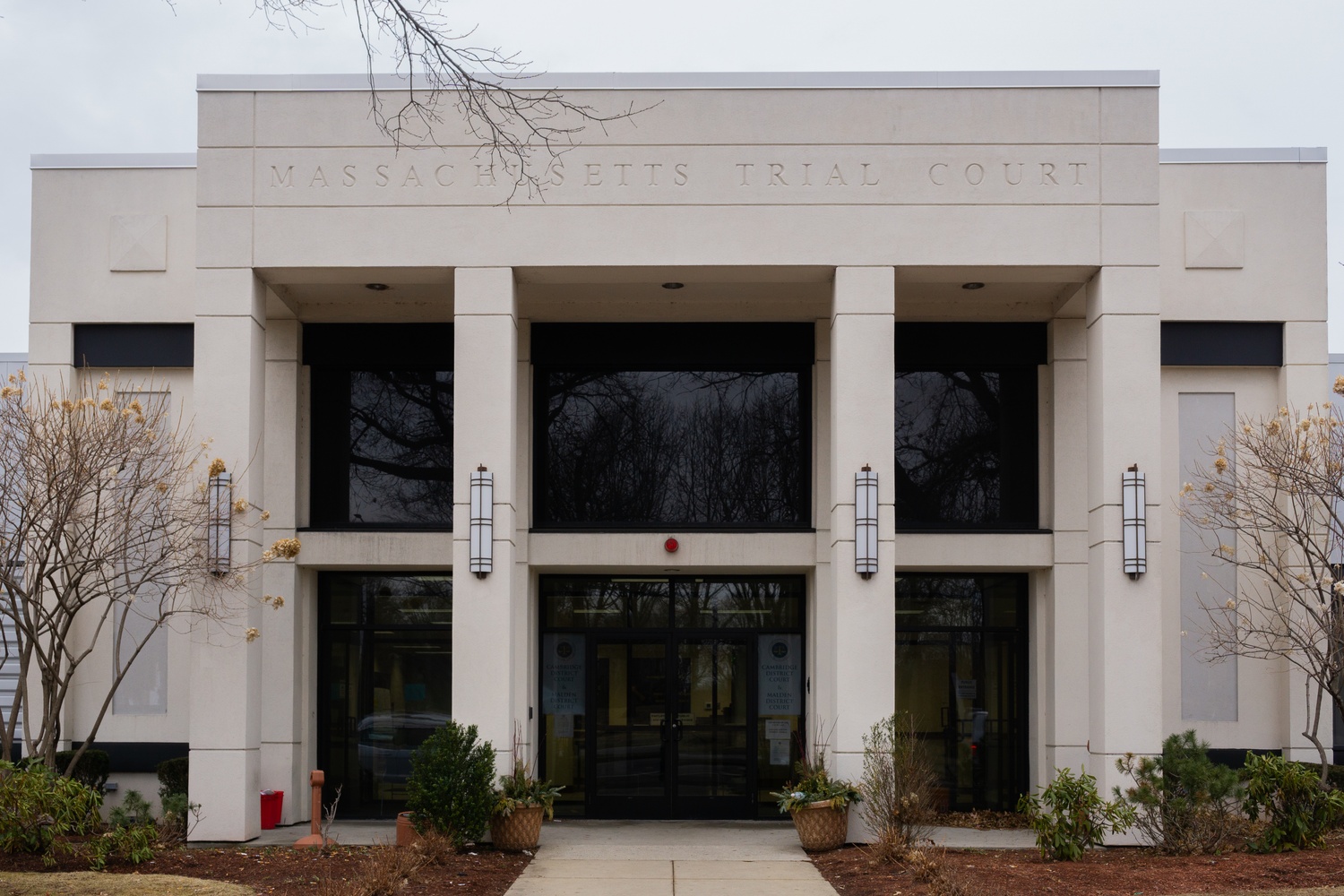
News
Summers Will Not Finish Semester of Teaching as Harvard Investigates Epstein Ties

News
Harvard College Students Report Favoring Divestment from Israel in HUA Survey

News
‘He Should Resign’: Harvard Undergrads Take Hard Line Against Summers Over Epstein Scandal

News
Harvard To Launch New Investigation Into Epstein’s Ties to Summers, Other University Affiliates

News
Harvard Students To Vote on Divestment From Israel in Inaugural HUA Election Survey
4 More Defendants in Cambridge Brothel Case Agree to Pretrial Probation

Four more defendants who were charged for their alleged involvement in a Cambridge brothel network accepted pretrial probation conditions on Wednesday at the Cambridge District Court.
Twenty defendants accepted the same terms last week at previous pretrial hearings, which include a nine-month probation period, during which they are prohibited from contacting sex workers and are required to complete 24 hours of community service.
The terms also include the completion of Spectrum Health Systems’ Community Approach to Reduce Demand program — a one-day module on the impact of prostitution on communities and personal testimonies from survivors of sexual exploitation.
Defendants were also ordered to pay a $2,000 court fee to one of two nonprofit organizations focused on human trafficking prevention. One organization is Boston-based My Life My Choice, which focuses on supporting teenage victims of commercial sexual exploitation. The other is Living in Freedom Together, an organization based in Worcester that offers support and resources for survivors of commercial sexual exploitation.
The four men who appeared at Wednesday’s hearing — George Wu, Patrick C. Enright, Kenneth Posco, and Harmanpreet Singh — were all represented by attorney Stephen Neyman, who did not respond to a request for comment.
If the defendants do not violate the conditions of their agreements, Judge David E. Frank — who has presided over each of the brothel cases — will dismiss the charges against them. If any of the men do not abide by the outlined conditions, their case will go to trial.
By agreeing to pretrial probation, the defendants avoid a conviction or admission of guilt.
Middlesex Assistant District Attorney Anna Taillon has served as prosecutor in all the defendants’ cases. The Middlesex District Attorney’s office did not respond to a request for comment.
The high-end brothel network operated in parts of Cambridge and Washington, D.C., suburbs between at least June 2020 to November 2023. The men involved with the brothel were charged with sexual conduct for a fee, a misdemeanor that rarely results in jail time.
There are 34 total defendants named in the case. Eight will have their pretrial hearings on Friday.
Of all the defendants, two are Harvard affiliates: Mitchell H. Rubenstein, an assistant professor of dermatology at Harvard Medical School, and James C. Cusack, an oncologist and former Harvard Medical School professor.
Cambridge city councilor Paul F. Toner was also charged for patronizing the brothel network. Toner allegedly paid for services from the brothel network more than a dozen times between January and September 2023.
Toner appeared for his pre-trial hearing on Tuesday, but Flaherty filed a motion to compel — a formal request for the court to order the prosecution to provide additional information about the case — and the hearing was rescheduled for Aug. 14.
Toner, who is the only elected official and the highest-profile name in the case, has resisted calls for his resignation from some Cambridge residents and a majority of his fellow councilors, but he announced earlier this month that he will not run for reelection in the fall.
—Staff writer Megan L. Blonigen can be reached at megan.blonigen@thecrimson.com. Follow her on X at @MeganBlonigen.
—Staff writer Caroline G. Hennigan can be reached at caroline.hennigan@thecrimson.com. Follow her on X @cghennigan.
Want to keep up with breaking news? Subscribe to our email newsletter.
